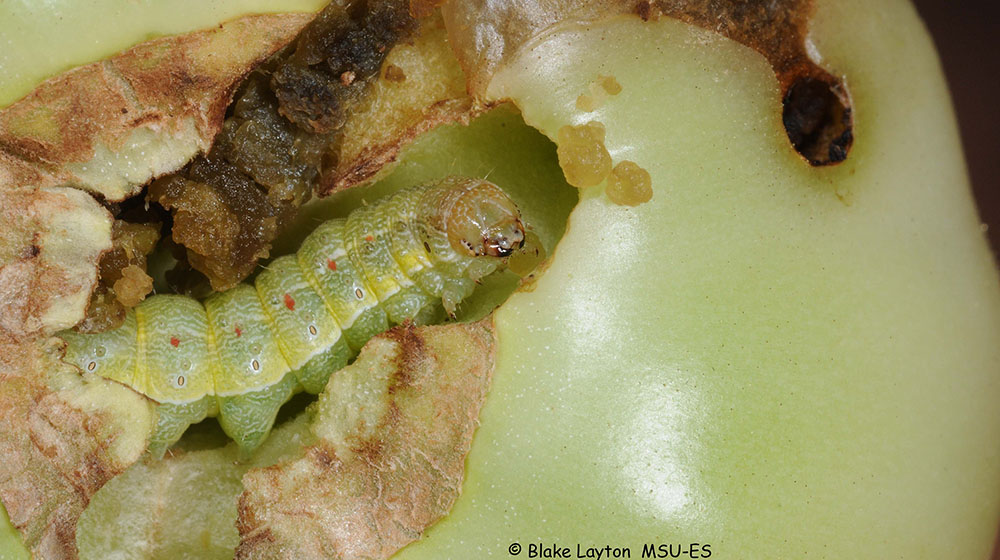Tomato Fruitworm, No 10
Your Extension Experts
Related News
April 22, 1996
January 29, 1996
August 11, 1995

Tomato Fruitworm
Helicoverpa zea
Order: Lepidoptera
Family: Noctuidae
Tomato fruitworms are one of the most damaging insect pests of tomatoes. These caterpillars feed directly on the fruit, and a single caterpillar can damage three or four tomatoes by the time it becomes fully mature and crawls to the ground to pupate. The night-flying moths lay their eggs individually on bloom clusters, and a moth can lay dozens of eggs in a single night. It does not take many moths to cause a serious infestation in a backyard tomato crop. Fruitworms are large, robust caterpillars that are up to 1.25 inches long. Caterpillars vary considerable in color, ranging from green to brown to red, depending on what they have been eating. They can even be purple-colored when feeding on eggplant. This insect attacks a wide range of vegetable crops: tomatoes, tomatillos, peppers, corn, beans, peas, and okra, as well as major field crops such as cotton, corn, sorghum, and soybeans, and ornamental plants like geranium, gladiolus, roses, and zinnias. Because of its wide host range and damage potential, this is one of the most economically important insect pests in the country.
Control: Begin applying weekly sprays for fruitworms as soon as tomatoes begin to bloom and set fruit. Products containing spinosad will control fruitworms, but products containing pyrethroid insecticides (permethrin, cyfluthrin, bifenthrin) will control fruitworms as well as stink bugs and leaffooted bugs. Any of these treatments will also control hornworms. If you are going to spray your tomatoes for insect pests, it is a good idea to treat for diseases as well. Uncontrolled disease problems can be more damaging than insects. Most of the fungicides and insecticides recommended for use on tomatoes can be tank mixed, but check labels of both products to be sure. Contact your county extension office for tomato fungicide recommendations.
See page 9-10, and pages 12-13 of Extension Publication 2347, Insect Pests of the Home Vegetable Garden for more information on fruitworm control.
Blake Layton, Extension Entomology Specialist, Mississippi State University Extension Service.
The information given here is for educational purposes only. Always read and follow current label directions. Specific commercial products are mentioned as examples only and reference to specific products or trade names is made with the understanding that no discrimination is intended to other products that may also be suitable and appropriately labeled.